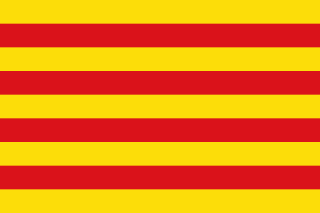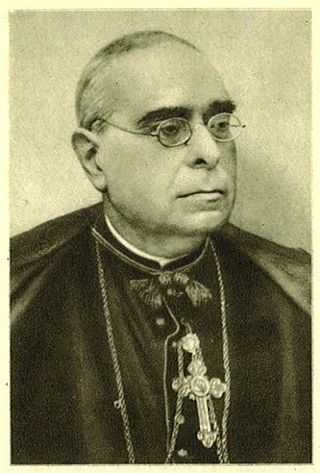
Catalan,known in the Valencian Community and Carche as Valencian,is a Western Romance language. It is the official language of Andorra,and an official language of three autonomous communities in eastern Spain:Catalonia,the Valencian Community,and the Balearic Islands. It also has semi-official status in the Italian comune of Alghero. It is also spoken in the Pyrénées-Orientales department of France and in two further areas in eastern Spain:the eastern strip of Aragon and the Carche area in the Region of Murcia. The Catalan-speaking territories are often called the Països Catalans or "Catalan Countries".
Linguistic anthropology is the interdisciplinary study of how language influences social life. It is a branch of anthropology that originated from the endeavor to document endangered languages and has grown over the past century to encompass most aspects of language structure and use.
Anthropological linguistics is the subfield of linguistics and anthropology which deals with the place of language in its wider social and cultural context,and its role in making and maintaining cultural practices and societal structures. While many linguists believe that a true field of anthropological linguistics is nonexistent,preferring the term linguistic anthropology to cover this subfield,many others regard the two as interchangeable.

Catalan nationalism is the ideology asserting that the Catalans are a distinct nation.
Judaeo-Catalan,also called Catalanic or Qatalanit,was a presumed Jewish language spoken by the Jews in Northern Catalonia and what is today Northeastern Spain,especially in Catalonia,Valencia and the Balearic Islands.
Language ideology is,within anthropology,sociolinguistics,and cross-cultural studies,any set of beliefs about languages as they are used in their social worlds. Language ideologies are conceptualizations about languages,speakers,and discursive practices. Like other kinds of ideologies,language ideologies are influenced by political and moral interests,and they are shaped in a cultural setting. When recognized and explored,language ideologies expose how the speakers' linguistic beliefs are linked to the broader social and cultural systems to which they belong,illustrating how the systems beget such beliefs. By doing so,language ideologies link implicit and explicit assumptions about a language or language in general to their social experience as well as their political and economic interests.
Michael Silverstein was an American linguist. He was the Charles F. Grey Distinguished Service Professor of anthropology,linguistics,and psychology at the University of Chicago. He was a theoretician of semiotics and linguistic anthropology. Over the course of his career he created an original synthesis of research on the semiotics of communication,the sociology of interaction,Russian formalist literary theory,linguistic pragmatics,sociolinguistics,early anthropological linguistics and structuralist grammatical theory,together with his own theoretical contributions,yielding a comprehensive account of the semiotics of human communication and its relation to culture. He presented the developing results of this project annually from 1970 until his death in a course entitled "Language in Culture." Among other achievements,he was instrumental in introducing the semiotic terminology of Charles Sanders Peirce,including especially the notion of indexicality,into the linguistic and anthropological literature;with coining the terms metapragmatics and metasemantics in drawing attention to the central importance of metasemiotic phenomena for any understanding of language or social life;and with introducing language ideology as a field of study. His works are noted for their terminological complexity and technical difficulty.
The Occitano-Romance or Gallo-Narbonnese,or rarely East Iberian,is a branch of the Romance language group that encompasses the Catalan/Valencian and Occitan languages spoken in parts of southern France and northeastern Spain.
Charles Leslie Briggs is an anthropologist who works at the University of California,Berkeley,United States. Before working at Berkeley he held a position as Chair of the Ethnic Studies Department at University of California,San Diego.

There are four languages with official status in Catalonia:Catalan;Spanish,which is official throughout Spain;Aranese,a dialect of Occitan spoken in the Aran Valley;and Catalan Sign Language. Many other languages are spoken in Catalonia as a result of recent immigration from all over the world.

Josep Torras i Bages,born at Les Cabanyes,Alt Penedès,on 12 September 1846,died at Vic,Osona,on 7 February 1916,was a Catalan thinker,writer,and bishop. He was one of the main figures in the turn of the 20th century Catholic Catalan nationalism.
Bambi B. Schieffelin is a linguistic anthropologist and professor emerita at New York University (NYU) in the department of Anthropology. Along with Elinor Ochs,she pioneered the field of language socialization. In addition,she has written extensively about language contact,language ideology,literacy,Haitian Creole,and missionization.
Frances Jane Hassler Hill was an American anthropologist and linguist who worked extensively with Native American languages of the Uto-Aztecan language family and anthropological linguistics of North American communities.

A pubilla in ancestral Catalan tradition was the female that would inherit the whole rural estate in the absence of a brother.
Penelope "Penny" Eckert is Albert Ray Lang Professor Emerita of Linguistics at Stanford University. She specializes in variationist sociolinguistics and is the author of several scholarly works on language and gender. She served as the president of the Linguistic Society of America in 2018.

Josep Maria Nadal i Farreras is Professor of History of Language at the University of Girona.

Paul V. Kroskrity is an American linguistic anthropologist known primarily for his contributions to establishing and developing language ideology as a field of research. He is professor of anthropology,applied linguistics,and American Indian Studies at the University of California,Los Angeles. He is the past President of the Society for Linguistic Anthropology and past Chair of the American Indian Studies program at the University of California,Los Angeles.
Emili Boix-Fuster is a sociolinguist. His main academic interests are sociolects,intergenerational language transmission and linguistic ideologies in Catalan-speaking territories.
Raciolinguistics examines how language is used to construct race and how ideas of race influence language and language use. Although sociolinguists and linguistic anthropologists have previously studied the intersections of language,race,and culture,raciolinguistics is a relatively new focus for scholars trying to theorize race throughout language studies. Geneva Smitherman credits H. Samy Alim for the coinage of the new term,discussed at length in the 2016 book by Alim,John R. Rickford and Arnetha F. Ball which compiled raciolinguistic research. In their work,raciolinguists incorporate intersectionality in theorizing how various identities within a group and/or an individual influence lived experiences of race. Nelson Flores and Jonathan Rosa also used the term in their discussion of "appropriateness" in American language and education.

Polaco is a Spanish derogatory term for a Catalan person. Its origins are not clear and all related theories are purely speculative,usually banking on the fact that the same word denotes a Pole. The name appears across all Spain,though in particular in Madrid and in the regions neighboring Catalonia. Rarely present in literary language,it forms part of the slang vocabulary;its best-known usage is during sport competitions. In Catalonia the term is accepted and at times used once its derogatory flavor is wiped out or reversed,such as when telling Catalans from other Spaniards. In Poland the term is generally unknown;when reported,its offensive connotation is marginalized or ignored,replaced with references to alleged Catalan sympathy towards Poland.








